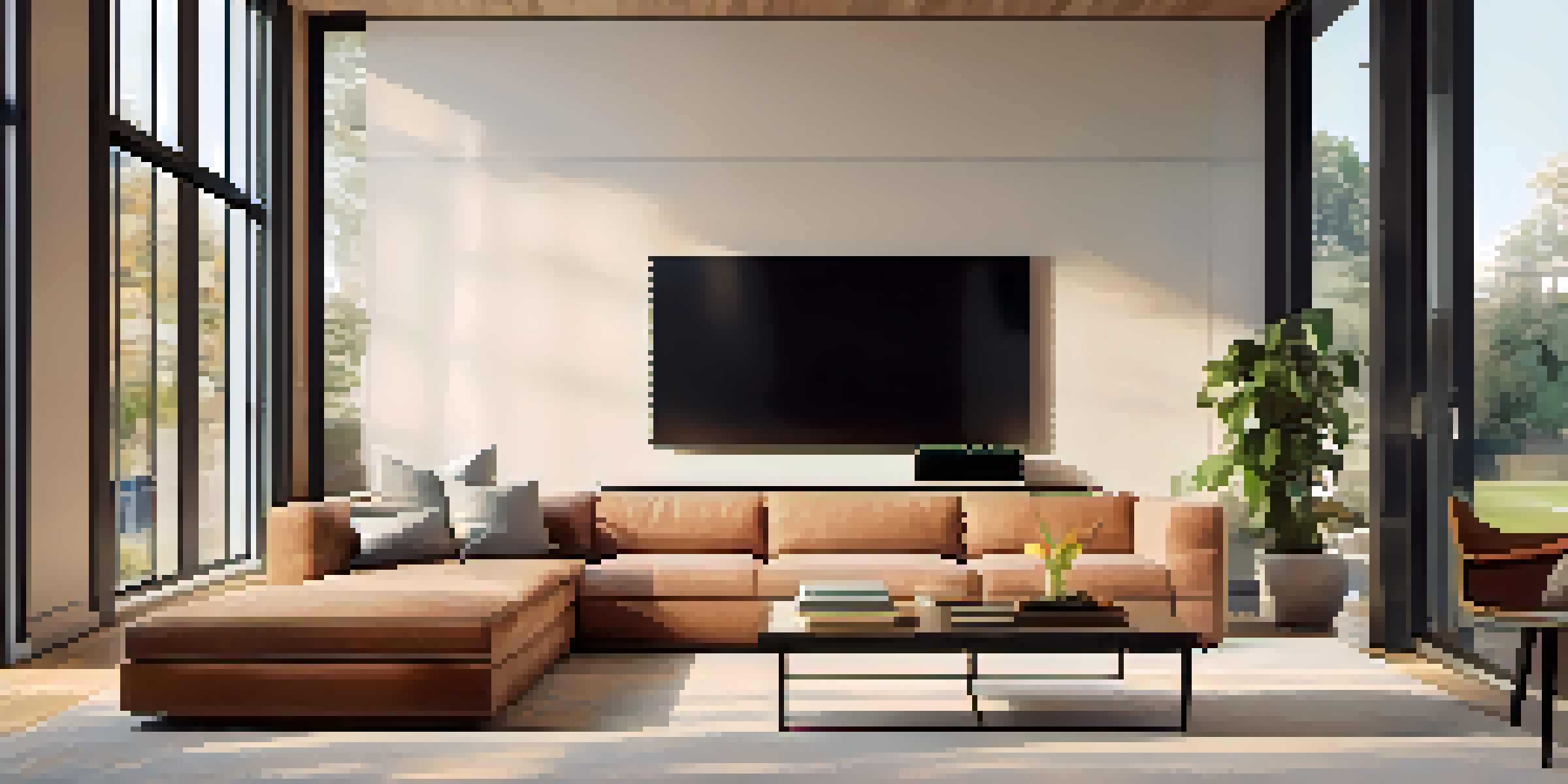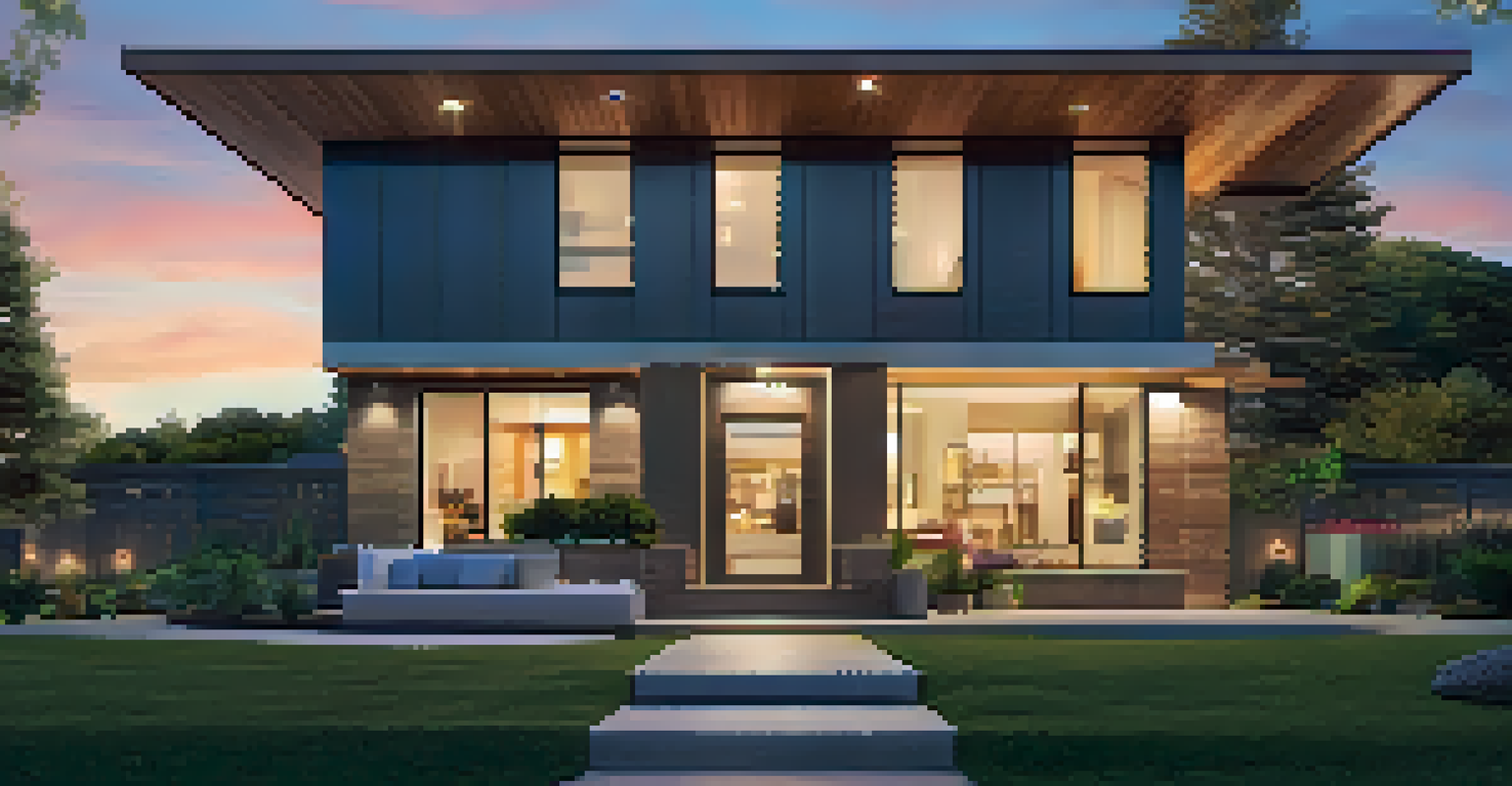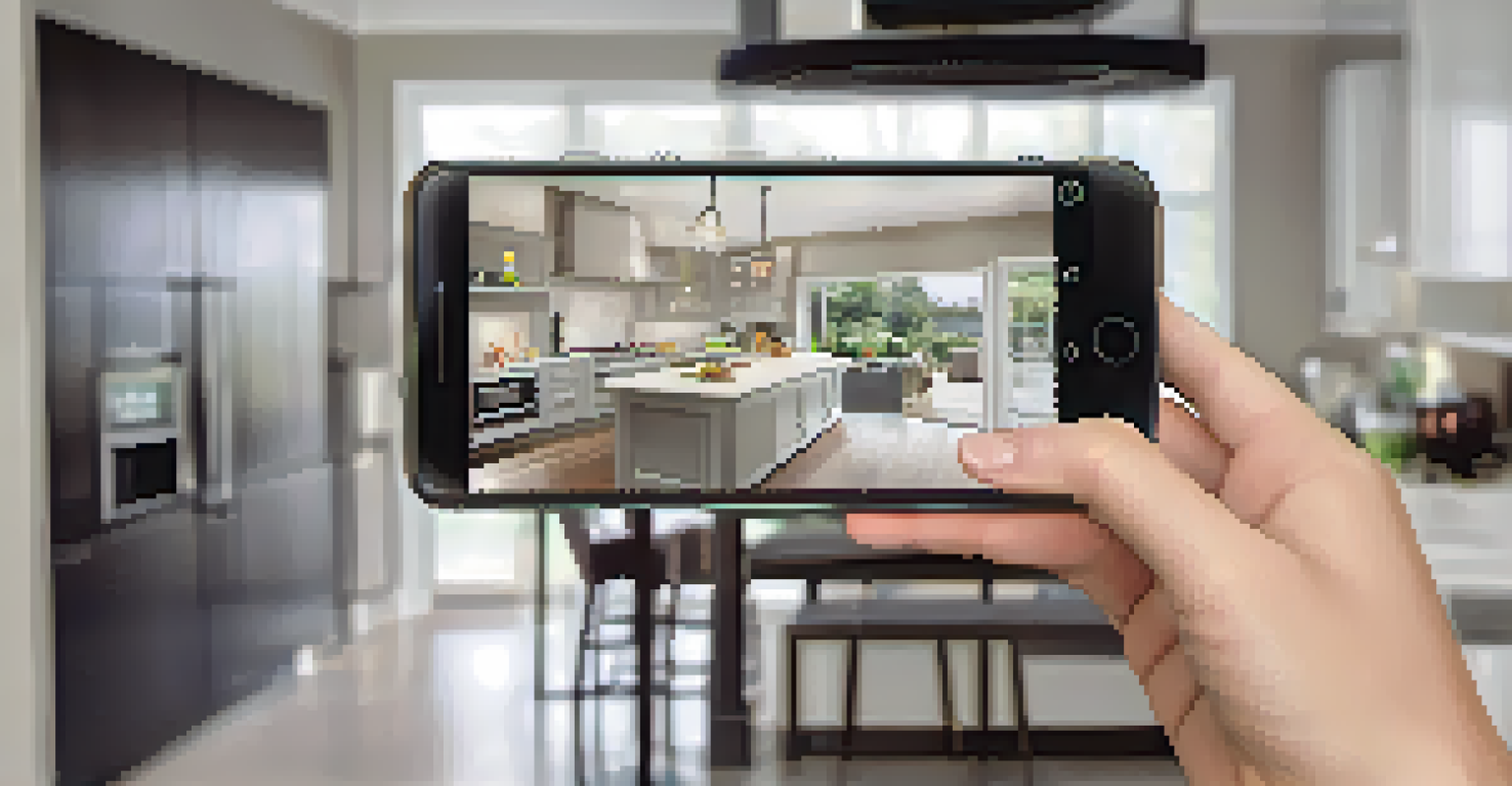The Influence of Smart Home Devices on Personal Security

Understanding Smart Home Devices and Their Role
Smart home devices, like security cameras and smart locks, are designed to make our lives easier and safer. They connect to the internet, allowing us to control them remotely via smartphones or other devices. This connectivity not only enhances convenience but also plays a crucial role in personal security, keeping our homes monitored and protected from potential threats.
The future is already here — it's just not very evenly distributed.
Imagine being able to check in on your home while you're away on vacation; smart home devices make this possible. With live video feeds and alerts sent straight to your phone, you can keep an eye on your property from anywhere in the world. This sense of control can significantly reduce anxiety about home security, especially for those who travel frequently.
In essence, these devices have transformed our concept of home security. Instead of relying solely on traditional alarm systems, homeowners now have access to a suite of tools that can be customized to fit their unique needs and lifestyles. As we delve deeper into this topic, we'll explore how these devices specifically influence personal security.
The Rise of Smart Security Cameras
Smart security cameras have gained popularity for good reason; they provide real-time surveillance and the ability to monitor your home from afar. These cameras can be placed inside and outside your house, offering a comprehensive view of your property. With features like motion detection and night vision, they can alert you to any unusual activity, enhancing your peace of mind.

For instance, if a delivery person arrives while you're at work, you can see them and even speak to them via a two-way audio feature. This not only helps with package security but also deters potential intruders who might think twice when they see a camera watching them. The ability to engage with visitors remotely adds an extra layer of safety.
Smart Devices Enhance Home Security
Smart home devices like cameras and locks provide users with advanced monitoring and control options for personal safety.
Moreover, many smart cameras can integrate with other devices, such as smart lights or alarms. This interconnectedness means that when a camera detects movement, it can trigger lights to turn on, making it appear as though someone is home. Such features illustrate how smart cameras are redefining home security in a smart way.
Smart Locks: Keyless Convenience and Security
Smart locks offer a convenient and secure alternative to traditional keys. With options like keypad entry or smartphone access, they eliminate the need for physical keys, reducing the risk of being locked out or losing your keys. These locks can also provide temporary access codes for guests or service personnel, adding flexibility to your security measures.
Technology is best when it brings people together.
Imagine hosting a friend while you're at work; instead of leaving a spare key under the doormat, you can simply send them a temporary code to enter your home. This not only enhances security but also allows you to maintain control over who enters your space. Additionally, you can receive notifications each time the lock is used, keeping you informed about who is coming and going.
The integration of smart locks with other smart devices can further enhance security. For example, if a security camera detects movement at your door, it can alert you, and you can remotely lock or unlock the door as needed. This seamless connection between devices exemplifies how smart locks play a vital role in modern home security.
Home Automation: A Holistic Security Approach
Home automation systems allow homeowners to create a cohesive security environment. By integrating various smart devices, such as lights, cameras, and alarms, these systems can provide a comprehensive security solution. For instance, you can program your lights to turn on and off at specific times, giving the illusion that someone is home, even when you're away.
Consider a scenario where you're on vacation; with a home automation system, your security cameras can send alerts if they detect movement, while your lights mimic your usual routine. This kind of proactive approach can deter would-be intruders, making your home less appealing as a target. Such systems not only enhance security but also contribute to energy efficiency.
Home Automation for Comprehensive Safety
Integrating various smart devices through home automation creates a cohesive security environment that can proactively deter intruders.
Moreover, these systems can be controlled through a single app, making it easy to manage your security from one place. The convenience of automating responses to security events can help homeowners feel more secure and in control. As we continue, we'll explore how these systems contribute to a sense of safety and well-being.
Data Privacy and Smart Home Devices
While smart home devices provide numerous security benefits, they also raise important questions about data privacy. These devices often collect personal data to function effectively, which can be a concern for users who value their privacy. Understanding how your data is used, stored, and protected is crucial when integrating these devices into your home.
For example, many smart cameras and doorbells offer cloud storage options for recorded footage. While this can be a convenient feature, it also means that your data is stored on third-party servers. Homeowners should carefully review privacy policies and choose devices that prioritize data protection to ensure their information remains secure.
As the demand for smart home devices grows, manufacturers are increasingly focusing on enhancing privacy features. Consumers can look for devices with robust encryption and clear user controls to mitigate potential risks. Balancing convenience with privacy is essential for anyone looking to enhance their home's security using smart technology.
User Education: The Key to Effective Security
Even the best smart home devices can only enhance security if users understand how to use them effectively. Education plays a key role in ensuring that homeowners can take full advantage of the security features available. This includes knowing how to set up notifications, manage access codes, and integrate devices for optimal protection.
For instance, many users may not realize the importance of regularly updating their device firmware. These updates often include security patches that protect against vulnerabilities. By staying informed about the latest features and updates, users can make their smart home systems more resilient against potential threats.
Data Privacy Concerns in Smart Tech
While smart devices improve security, they also raise important issues regarding the collection and storage of personal data.
Additionally, many manufacturers provide resources and support to help users maximize their devices' effectiveness. Engaging with these resources can empower homeowners to create a comprehensive security strategy tailored to their needs. As we wrap up, we'll look at the future of smart home devices in personal security.
The Future of Smart Home Security
As technology continues to advance, the future of smart home security looks promising. With innovations such as artificial intelligence and machine learning, smart devices are becoming increasingly sophisticated. These advancements enable them to learn user patterns and behaviors, allowing for enhanced security measures tailored to individual lifestyles.
For example, imagine a home security system that can distinguish between family members and strangers, sending alerts only for unfamiliar faces. This level of personalization can greatly reduce false alarms and improve overall security. Additionally, as smart home devices become more interconnected, they will provide even more comprehensive security solutions.

As we embrace this future, it's essential for consumers to remain informed about emerging technologies and trends. By understanding how these advancements can enhance personal security, homeowners can make informed decisions about their smart home investments. Ultimately, the evolution of smart home devices promises a safer and more secure living environment for everyone.